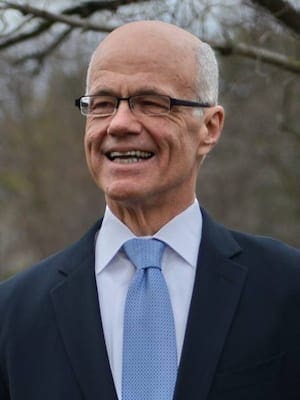There’s more than a year to go before the presidential election, and, already, I am weary with the campaign.
When I can manage simply to view the candidates as performers, some talented and others not so much, and hear their speeches as scripts in an over-the-top television series, the political news is entertaining.
Even without Stephen Colbert and Jon Stewart to point out their shape-shifting and self-contradicting ways, I look on in bemused disbelief as candidates twist themselves into parodies of “leadership.”
I laugh, of course, but my laughter is almost always accompanied by groans of frustration.
We face serious and urgent problems as a nation: vexingly persistent racism; ongoing unemployment, especially in minority communities, and widespread underemployment; the fragile nature of the globally interconnected economy; crumbling and decaying infrastructure; and the looming threats of terrorism, to name only a few of our most obvious challenges.
We need honest, civil and solution-focused conversations about these and so many other issues. We have to find ways to collaborate on the shared ground of commitment to the common good.
This requires that we pursue pragmatic and workable strategies to give people realistic opportunities to make their lives better and to create conditions of empowerment and encouragement that nurture their efforts at self-development.
And, we must be sure that we do not abandon people who cannot care for themselves.
I wish we could “practice” such honest and constructive conversations in our congregations.
Unfortunately, the posturing, position-taking and partisan name-calling of our national politics have jaundiced how we see each other closer to home.
We seem to have forgotten our commonalities, and we’ve magnified our differences instead.
As I observed before, almost all congregations have become ideologically segregated: they are either “blue” or “red.” There are hardly any “purple” congregations left, and I think it’s a real loss, especially of the opportunity to learn the ways of civility.
Civility is a reflection of the character of God. Christians affirm that they experience God’s rule and reign most fully in the self-giving and other-serving ways of Jesus.
Jesus taught by means of persuasion and not coercion. He invited people to yield to grace and mercy, but he never forced them to do so.
He taught us to love our neighbors and, even, to love and pray for our enemies so that they, too, may be transformed into neighbors.
When we are civil – using our powers of speech to make our case but not to manipulate; to debate but not to demean; to serve and not to dominate – we represent a God who rules the world by love.
Civility is also a way of bearing witness to the God-given dignity of all human beings.
Even people whom we do not particularly like and with whom we have significant disagreements are made in the image of God.
“Every human being is a center of value. The value may not always be obvious to us. This is why we have to go out of our way to reflect on the value of specific human beings. We Christians can do this by reminding ourselves that the person in question is created by God,” said ethicist and former Fuller Seminary president Richard Mouw in his book, “Uncommon Decency: Christian Civility in an Uncivil World.”
He continued, “If an artist friend produces a work of art that I don’t particularly like, I can still treat that artifact with reverence if I remind myself of the value it has for the person who made it. The more I respect the artist, the more I will go out of my way to revere her work.”
“Every human being is a work of divine art,” Mouw said. “I can learn a lot about how to treat an unlikable person with reverence if I keep reminding myself of the value the person has in the eyes of God.”
People who do not share our views, in whatever arena – work, school, clubs, politics and, yes, church – are people whom God loves.
We can oppose their positions vigorously and disagree with them strenuously, while at the same time treating them with respect and dignity.
It is possible to combine deep convictions, strong opinions and tender love. It’s not only possible; these days, it’s crucial.
 Guy Sayles is a consultant with the Center for Healthy Churches, an adjunct professor at Gardner-Webb Divinity School and a board member of the Baptist Center for Ethics. He will join the religion faculty at Mars Hill University in Mars Hill, North Carolina, in the fall. A version of this article first appeared on his website, From the Intersection, and is used with permission.
Guy Sayles is a consultant with the Center for Healthy Churches, an adjunct professor at Gardner-Webb Divinity School and a board member of the Baptist Center for Ethics. He will join the religion faculty at Mars Hill University in Mars Hill, North Carolina, in the fall. A version of this article first appeared on his website, From the Intersection, and is used with permission.

